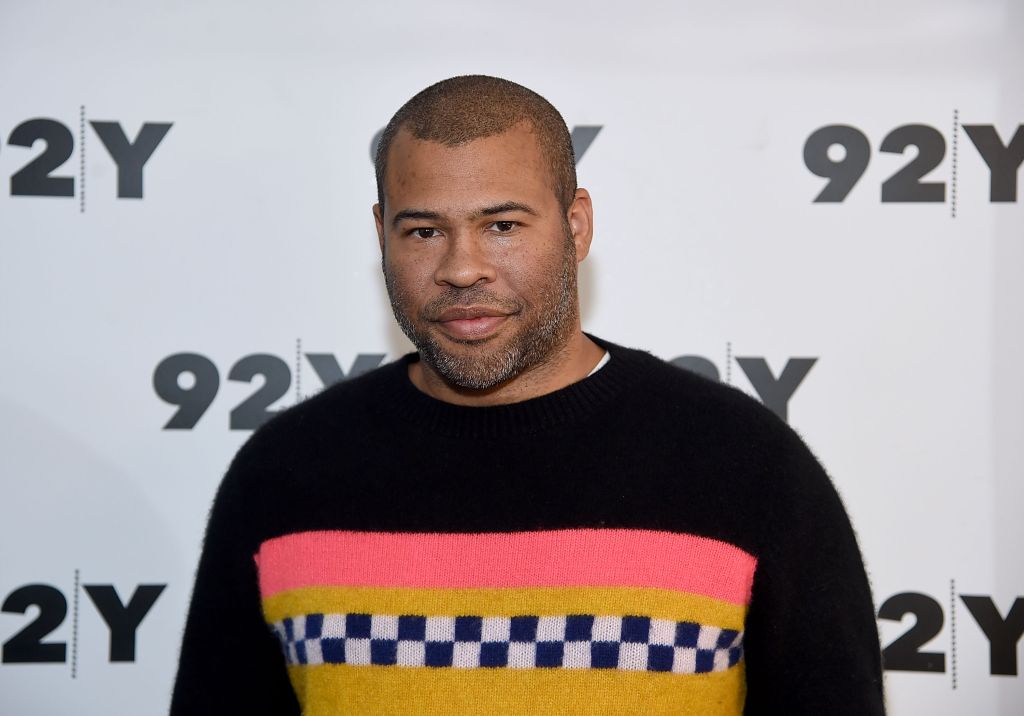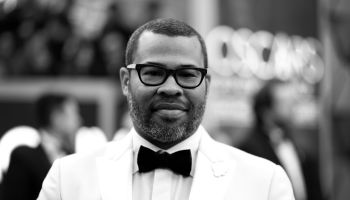
Source: Jamie McCarthy / Getty
John Singleton’s Boyz n the Hood won nearly universal critical acclaim from critics when it emerged in 1991. Roger Ebert called Singleton’s portrayal of police in the inner city an “occupying force.” “They live in a neighborhood where violence is a fact of life,” wrote Ebert. “Where the searchlights from police helicopters are like the guard lights in a prison camp, where guns are everywhere, where a kid can go down to the corner store and not come home alive.”
Ebert did not create the narrative, nor specifically did he pander to it, but these were the depictions that dominated the idea of the Black inner city at the time. They were thought of as wild spaces overrun by marauding gangs of thugs—where Hillary Clinton’s now infamous “super-predators” lived. For bringing to the screen the humanity of those kids (through the Mea Culpa of Furious Styles, played by a swaggering Laurence Fishburne) Singleton got a chance to do what no Black filmmaker in history had done: earn an Oscar nomination for “Best Director.” But it will take allowing Black filmmakers to truly depict the humanity of Black people outside of circumstances brought about by slavery or economic injustice to get a win. Namely, the kinds of films Hollywood allows to only a few directors.
Since Singleton, each directing turn from an Black man nominated for the award (no Black woman has ever been nominated) has featured a film with familiar narratives. They’ve been dissections of inner-city youth through various lenses (Barry Jenkins’ Moonlight, Lee Daniel’s Precious) or they’ve been Steve McQueen’s searing 12 Years a Slave. But Peele’s Get Out was a radical departure from those vantages. It was, instead, a dissection of racism itself.
But Peele’s Get Out was a radical departure from those vantages. It was, instead, a dissection of racism itself.
From the beginning there were grumbles that Oscar voters would see the film as a kitsch-y dark comedy. The Golden Globes just straight-up put it in that category, gaining the antipathy of a swath of Twitter. Recently, The Hollywood Reporter wrote that an anonymous Oscar voter accused the film of playing “the race card.” “It’s a good B-movie and I enjoyed it,” they said. “But what bothered me afterwards was that instead of focusing on the fact that this was an entertaining little horror movie that made quite a bit of money, they started trying to suggest it had deeper meaning than it does, and, as far as I’m concerned, they played the race card, and that really turned me off.”
Now, I’m not sure how one could miss the point of a film entirely and be an Oscar voter … wait. They went on to say this, “In fact, at one of the luncheons, the lead actor [Daniel Kaluuya], who is not from the United States [he’s British], was giving us a lecture on racism in America and how black lives matter, and I thought, “What does this have to do with Get Out? They’re trying to make me think that if I don’t vote for this movie, I’m a racist.” I was really offended. That sealed it for me.”
I suppose racism is specific to the United States in the mind of that Academy voter. It’s hard to imagine Peele winning after inspiring that kind of hurt in someone that conservative. But that’s the point. While gritty looks at the reality of institutional racism get nods, they don’t necessarily get Oscar voters to see your directing outside of partisan politics. When, in fact, African-Americans have had politics thrust into our lives since the nation’s founding.
The question, then: Is Hollywood ready to hand Black directors and actors the keys to more diverse themes of films? What I’m asking is, could any Black filmmaker out there make a film with a Black cast similar to Del Toro’s Shape Of Water or Alfonso Cuaron’s Gravity? Or, has the success of films like Get Out and Black Panther only served to pigeon hole Black directors further?
It’s easy to think that studios will open up budgets to more Black filmmakers, writers, and producers. That notion, though, would overlook how inflexible Hollywood has been about the type of content available to Black people over the course of their history.

















